USGS states that around 15% of US population uses well water to meet their daily water needs.
Many private well owners ask if they can use well water for washing cars, motorbikes, bicycles, or driveways. This article explains everything you need to consider before using well water to washing cars.
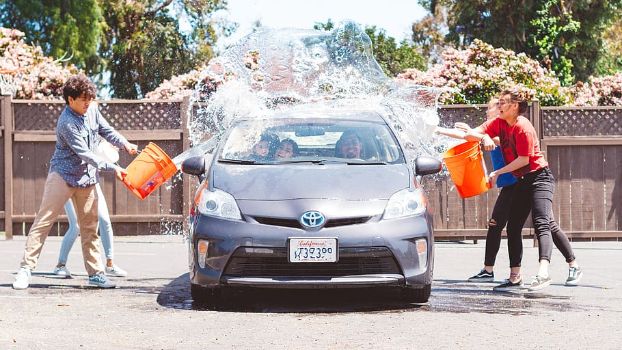
Sings that Well Water is Causing Damage to Your Car’s Paint
- Mineral deposits in the form of white and gray streaks
- Pits on the paint
- Rust on metallic parts
- Dullness on shiny parts
- Streaks on mirrors
Reasons Why Washing Your Car with Well is Not a Good Idea
Well water or untreated underground water is rich in minerals, sediment, chemicals, and contaminants like iron, magnesium, and calcium. While some are necessary elements of a balanced diet, they aren’t too gentle on your home’s plumbing, appliances, plants, and vehicles.
Hence, it is important to get well water tested before using it for washing cars or any other purpose. A water test will confirm the contaminants in the water, and then you can decide if well water is fit for washing cars.
Let’s check the common reasons why many people say that well water isn’t too good for washing cars. Please note that some wells may produce water that is fit for washing cars, or some people may use well-water friendly products. Don’t lose heart. You can still wash your cars with well water if you know how to do it.
1.Iron in Well Water
Iron in well water can cause chrome or metallic parts to catch rust and become weak over time. This problem is specifically related to soluble ferrous iron in well water. You cannot see it or detect it without a water test.
The biggest symptom is an orange/red/brown streaks or marks on your car’s paint or metallic parts. Over time it will lead to rust and eat away your car’s metal parts.
The easiest and best solution to higher iron levels is to install an iron filter with well water. Most private well owners already have an iron filter installed with well water. However, the filter doesn’t generate enough flow rate to wash a car, and homeowners usually bypass filtration systems and pressure tanks when washing their cars or driveways.
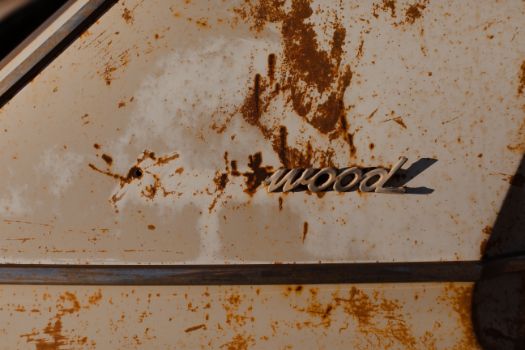
2.Hard Water
Around 85% of the US population has hard water in their homes. Hard water and well water go hand in hand. There are very few wells in the US that produce soft water.
Hard water is rich in calcium and magnesium. Although these two elements are required for a healthy diet, they can wreak havoc on your home’s plumbing system, appliances and affect your car’s paint.
Hard water is corrosive, doesn’t make enough lather with car washing products (unless you are using a hard water detergent), and leaves streaks on your car’s paint.
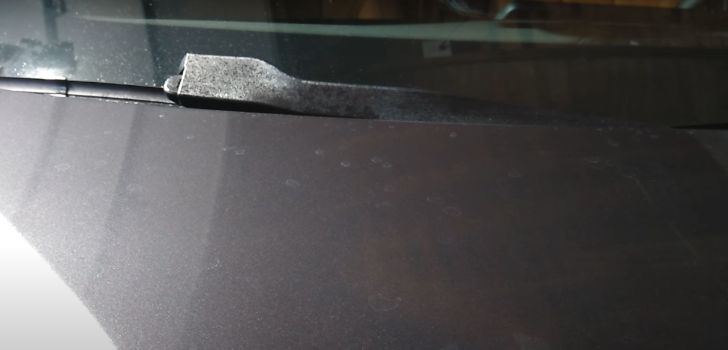
Hard water leaves a layer of minerals on the car’s surface. When you dry the car, even if you do it instantly, you’ll see white and gray streaks on the car’s paint, mirrors, or interior.
Over time, these minerals can react with paintwork and cause paint tearing and rust. If you don’t stop using hard water to wash your car, you may have to opt for costly paintwork anytime soon.
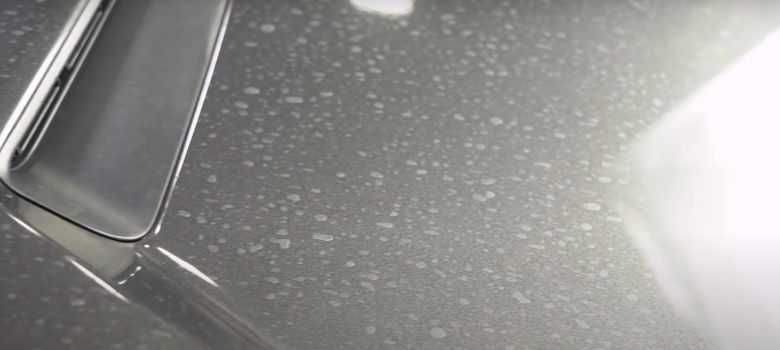
How to Avoid Hard Water Streaks and Stains on Your Car?
Drying your car instantly after washing is a simple and best way to avoid these streaks. You can also wash your car in small portions and move to the next only after drying the washed one. However, it will make the work time-consuming and tiring.
You can also use hard water products to wash your car. Some people polish their cars instantly after washing them with hard water to remove mineral streaks and marks. After washing it with hard water, you can also rinse your car with soft, RO, or distilled water. It will not remove all the minerals but reduce them below the danger line.
Can I Use Soft Water to Wash My Cars?
A more effective solution is to use water from a softener. The water from a softener may be a bit slow, but you can enhance it using a pressure washer. Washing your car with a water softener has its advantages. There are no mineral deposits, and it reduces soap usage.
Please note that water from a softener may still contain chemicals, sediment, and TDS. So, testing your well water before washing your cars is recommended.
3.Sediment
Well water catches sediment when it moves underground. The sediment can make well water gray, orange, yellow, black, or cloudy.
While sediment is usually harmless to your health, it can affect your car’s paint and home appliances.
If well water contains sand or iron particles, they act like sandpaper when you scrub your car using this water. You may not see the effect instantly, but your car’s paint will start looking bad and tearing after a few washes.
The good part about suspended particles in water is that you can quickly see them because they affect water aesthetics.
4.Chemicals and Solvents
Some wells may be contaminated with chemicals like fertilizers, petrochemicals, trihalomethanes, and heavy metals.
These contaminants must not be taken lightly, as they can severely harm your family’s health.
Such contaminants are not common in wells but are found in wells located near animal dumping sites, industrial areas, or septic tanks. Such problems happen with wells not built according to local and state laws.
Some of these chemicals may react with your car’s paint and cause permanent damage.
5.Total Dissolved Solids
EPA recommends a 500 mg/L limit for TDS for drinking water. However, car experts recommend TDS below 50 mg/L.
TDS typically includes sulfates, chlorides, potassium, inorganic matter, calcium, and other dissolved contaminants that mechanical filtration can’t remove.
Washing your car with well water rich in TDS can lead to spots, stains, and marks. Over time, the spots can become permanent and reduce your car paint’s UV protection.
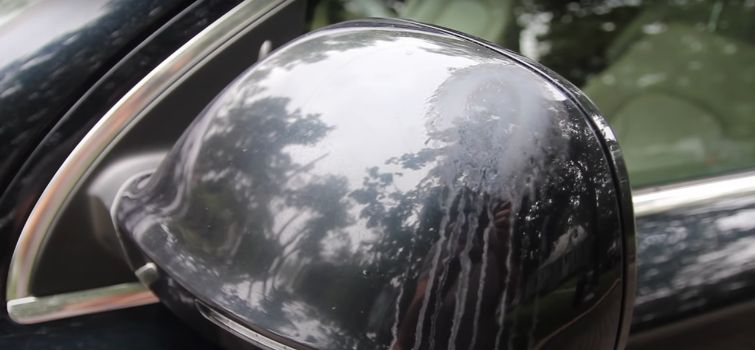
Washing Car with Well Water – The Right & Safe Way
Washing cars at home is a cheaper option. You get to care for your car the right way and spend some time with your cherished ride.
So, if you don’t want to buy water for washing your car or head out to the nearest car wash, here is how to safely wash your car with hard well water.
- Wash your car when the sun is down, or look for a shaded spot.
- Use less water to remove dirt and debris from the car.
- Use products specifically made for washing cars with hard water.
- Dry the car quickly after removing the soap. Don’t leave any spots wet or for air drying.
- Rinse your car with RO, distilled, or soft water.
- Use high-quality polish and wax to remove leftover minerals on the car’s surface.
- Use any high-quality water spot remover to remove leftover marks. Do not use homemade solutions, they may react with your car’s paint.
Will my Car Smell bad if my Well Water has Odor?
Your car may smell bad for a couple of days. However, such smells don’t go unnoticed; you’ll smell them immediately after washing your car. The easiest solution to remove smells from the car is to use car air fresheners.
Is Tap (City Water) safe for washing your cars?
Tap water or city water is treated before being supplied to your home. It is usually safe for washing cars. Most car wash stations use city water to wash the cars. However, sometimes it may be hard or contain iron that enters when water moves through pipes. So, inspecting your car after washing it with city water is better.
